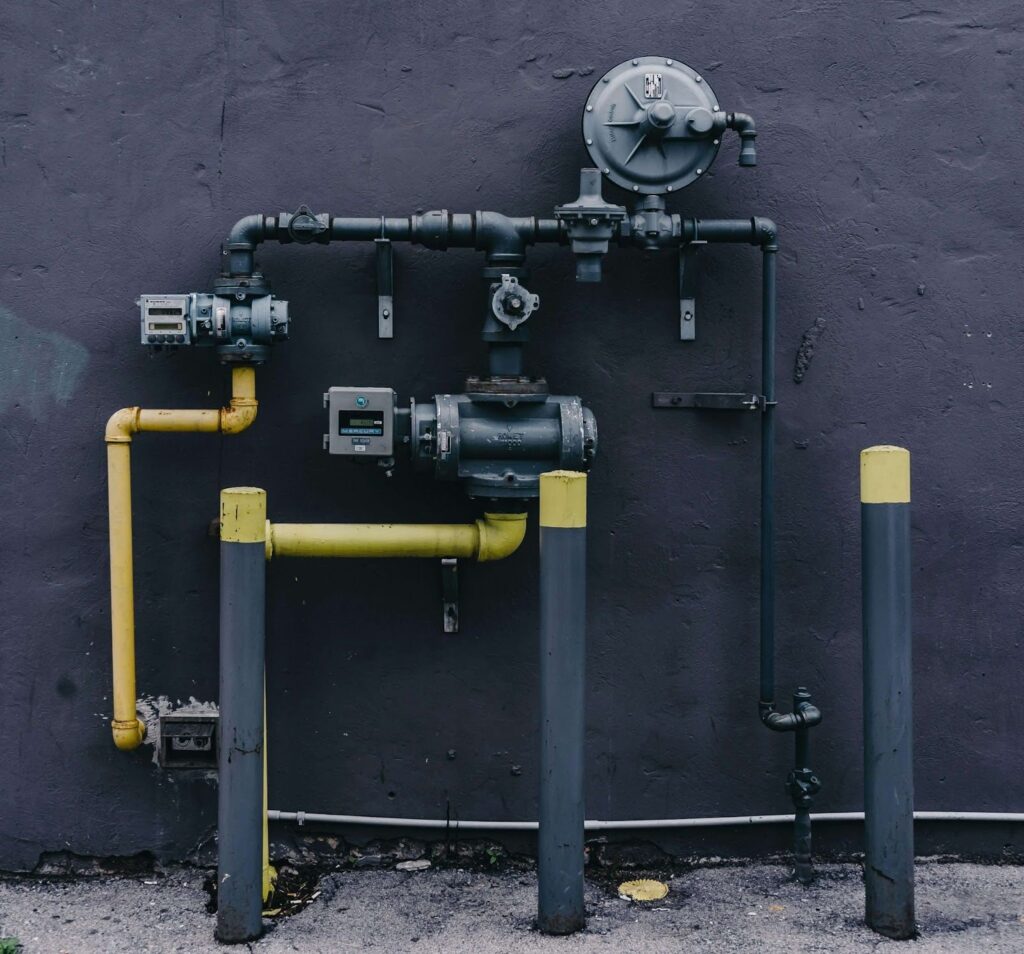
Homeowners insurance costs have steadily increased lately with insurance rates jumping over 20%. Several reasons have contributed to this increase, from higher labor costs to recurrent weather events. Nevertheless, we bring you good news that many homeowners are unaware of. Renovating your home can do more than just make your space aesthetically pleasing. It can help you cut down on your insurance premium payments.
How Can You Lower Your Insurance Costs?
Many insurance companies offer discounts to homeowners that they consider security-conscious and risk-averse. Therefore, your premium rate will likely fall when you carry out certain renovations around your home. Below are 12 ways you can improve your home and reduce your insurance payments all at the same time:
1. Home Security Systems
An up-to-date home security system protects you from dangerous situations and helps you earn premium discounts. Different components come together to form a security system. Therefore, you can mix and match security components according to your preference and budget. One of the most important components is a smoke detector. Many homes already have one, however, you should ensure that your smoke detector works. You can do this by replacing the batteries often.
You should also consider having a burglar alarm system. The system involves sensors which may be motion sensors, glass break sensors, or a mix. A breach is what activates the actual alarm.
Other components of a home security system include carbon monoxide detectors, cameras, and door and window sensors. At the very minimum, you can get 5-10% off your premium from your insurer for a working smoke detector and burglar alarm system.
2. Roof Upgrades and Repairs
Roof replacements are expensive ventures and insurance companies don’t like paying large settlement amounts. Therefore, if the home inspection shows that your roof is well-maintained, they will see you as less of a risk. You will likely not need to revamp your roof completely. Instead, you can begin with a professional roof assessment. The contractor may recommend replacing missing shingles or tiles or treating your roof for moss growth. You should also consider asking your contractor for waterproofing and impact-resistant shingles to upgrade your roof fully.
However, if you have an old or weakened roof, it is best to replace it before a home inspection. Consider much more durable and storm-resistant materials when replacing your roof. This will inevitably lower your premium. This is because many insurers consider your roof’s age when calculating your premium. An older roof means a higher chance of collapse or damage and this makes you a high-risk policyholder. On the flip side, a newer roof means less risk.
3. Improved Plumbing Systems
Water damage can quickly render a home unlivable because it often leads to mold damage. While there are different species of mold, many of them are dangerous to human health. Furthermore, mold can be difficult to treat. Therefore, water damage can run into hundreds of thousands of dollars.

Consider upgrading your plumbing systems by protecting them against freezing in winter. Also, speak to a plumber to inspect your plumbing system. It might need a total replacement if the materials are old or weakened. In this scenario, opt for modern and durable materials such as copper.
4. Updated Electrical Wiring
Electrical issues and outdated electrical wiring are huge red flags for insurers. This is because they can quickly start fires which then lead to costly claims. Rewiring your home might make a dent in your pocket but insurers will be falling over themselves to insure you. It will also give you leverage with which you can request a discount. The best part is that it reduces the risk of you and your home being involved in fires.
5. Home Smart Devices
Certain smart devices present you as a prudent and security-conscious homeowner. For example, installing a water leak detector will alert you of small leaks before they lead to severe water damage. Another important smart home device that could fetch you discounts is an automatic water shut-off device. This device automatically shuts off your water supply when it notices any moisture or irregular water flow. Just like a water leak detector, this can curb problems before they cause flooding or mold in your home.
These home smart devices are not limited to those that prevent water damage. You can also consider smart thermostats and smart smoke detectors. Having any or a combination of these devices can get you up to 10% off your premiums.
6. Fire Suppression Systems
A fire suppression system ensures that a fire does not engulf your home when you are away. Although smoke detectors are part of a home security system, a fire suppression system is much more comprehensive. For example, it usually consists of an indoor sprinkler system. Sprinklers can help mitigate fires before they spread out of control. The best part is that not every fire suppression system requires electricity to work.
Every insurer wants a policyholder that takes extra care of their home. A fire suppression system is the best example of that. Therefore, insurers will be willing to cut down your premium amount.
7. Storm Shutters
These are especially important for policyholders living in storm and extreme weather-prone areas. A good example is Florida. Many insurers would require you to purchase separate coverage for these extreme weather events. Nevertheless, a home that is equipped with storm shutters is less likely to suffer severe damage during a storm. Therefore, although you may be paying for a separate policy, you will likely get a discount. This will further cut down on your homeowners insurance costs. Additionally, you will rest assured that your home is safe during a storm.
8. Landscaping
You should know that not all kinds of landscaping attract reduced homeowners insurance costs. The landscaping we are referring to is the kind that takes care of dead or weakened trees. Getting rid of any trees with exposed roots or rot can reassure your insurer. This is because it reduces the risk of a tree falling on your home.

Tree falls can damage your roof or completely compromise your property’s structural integrity. Therefore, getting rid of any trees that pose a risk to your property will attract discounts. Landscaping for reduced homeowner insurance costs also extends to planting wind-resistant trees or having rock gardens to reduce flooding.
9. Energy-Efficient Appliances
This especially relates to your HVAC (heating, ventilation, and air conditioning) system. Modern HVAC systems are much more energy efficient. This means they also save you money on your electricity bill. Additionally, they help maintain consistent temperatures year-round so you do not experience frozen pipes.
You can also have Energy Star appliances and LED Lightbulbs. The newer and more modern your appliance, the lower the risk of claims. Therefore, insurers are often more willing to offer discounts.
10. Fortified Windows and Doors
You can reinforce your doors and windows to access reduced rates and consequently, reduced homeowners insurance costs. For instance, consider high-quality deadbolts on doors that guard entry points. Examples are your front and back doors. Doing so will reduce the chances of someone breaking into your home.

Additionally, you can upgrade your windows to impact-resistant ones. This will significantly lower the risk of shattering during storms or break-ins. It also shows a high level of security-consciousness which will attract insurance discounts.
11. Reinforced Foundation
If you live in an area prone to earthquakes, you should address any issues with your home’s foundation. You may also consider retrofitting your home to have a strong concrete foundation. A home with a weakened foundation will scare insurers away. This is especially so when you are trying to get a separate earthquake policy. If insurers then agree to provide coverage, it will be at a sky-high price. Therefore, having a repaired and reinforced foundation will easily cut down your homeowners insurance costs.
12. Home Generators
Generators are an alternative source of power for when unforeseen circumstances make you lose power. Examples of these circumstances are floods and other natural disasters. When power goes out in your home, it affects your electrical system and appliances. Additionally, generators provide your home with full functionality despite a power outage. Therefore, insurers may offer discounts if they feel that your chances of having power outage claims are reduced.
Conclusion
Home improvements bring you peace of mind and potentially reduced costs. Nevertheless, ensure you confirm with your insurer whether these improvements will fetch you savings. Also, consider different quotes from different insurers before settling on one.
However, even if a home improvement does not bring you savings, it helps to keep your home safe. It will also give you peace of mind as a homeowner.
Dealing with insurance companies in any way can be tricky and this is why you need a public adjuster. Reach out to On-Site Adjusting for all your claim-related needs. We are the adjusting company you can always trust.












